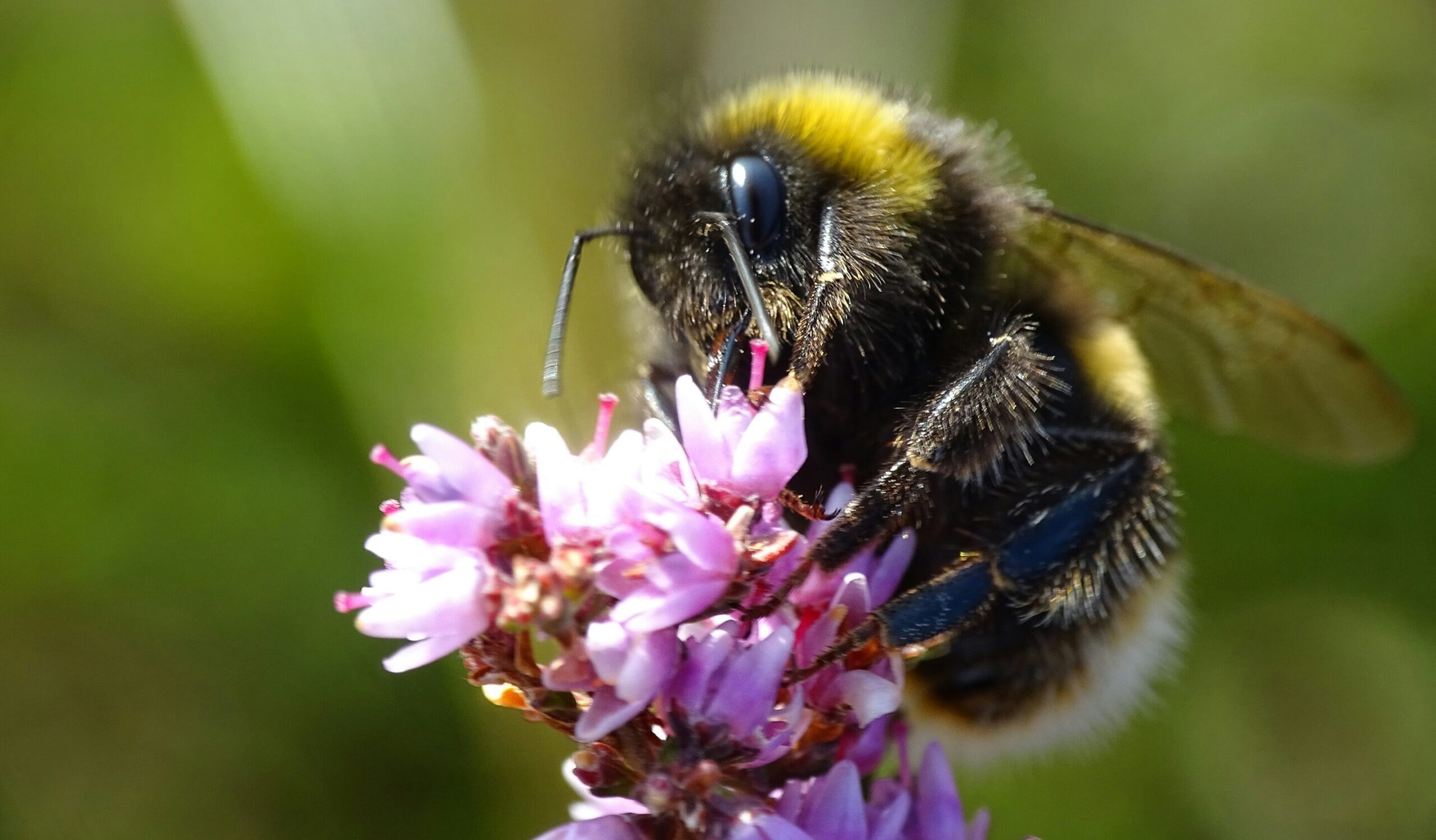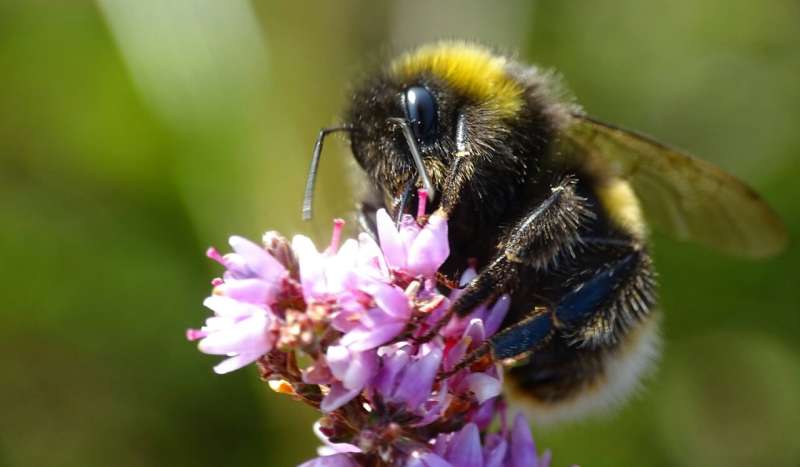

Psychologists at the University of Stirling have carried out research that shows wild bumblebees make the same memory errors as humans.
The paper, titled “The constructive nature of memories in insects: bumblebees as a case study,” was published in the Philosophical Transactions of the Royal Society B: Biological Sciences.
When presented with a variety of stimuli, the bumblebees were found to misremember, a key component of the episodic memory system which many psychologists argue is uniquely human.
The wild bumblebees were presented with colored objects soaked in sucrose, such as an orange strip of paper or a yellow, rounded paper stick.
After a short period of time, the bees were presented with four objects—one which was presented previously; one made up of two of the features of the objects presented previously; one with only one feature of the objects presented previously; and a completely new object.
Episodic memory
The bees then selected one of these objects by exploring it with their antennae or proboscis. Across a range of randomized trials, the bumblebees often remembered to go to the original object to seek out the sucrose, but they also made mistakes by selecting a similar stimulus of a different shape or color.
The bumblebees made the same mistakes that humans make in similar tasks. These memory errors are characteristic of a type of memory argued to be uniquely human, episodic memory—the ability to remember past events, for example our recent holiday.
Dr. Gema Martin-Ordas, who carried out the study at the University of Stirling, said, “In humans, the recombination processes that are critical for memory recollection are argued to make memory prone to errors that arise from mistakenly combining elements of stored episodes.
“In this context, memory conjunction errors are usual forms of memory distortions, and the results presented here show evidence of bees spontaneously making memory conjunction errors.
“If conjunction mistakes made by bees in the present studies indeed arise from erroneously merging elements of the to-be-remembered items, then one would be tempted to conclude that bees’ memories are also constructive.
“It is completely plausible to expect that these types of errors are present in bees because their natural lifestyle involves encoding and retrieving features from several stimuli, for example flowers.”
Constructive processes
The experiments involving 50 bumblebees were conducted in June and July 2022. The objects were presented to bees housed in transparent plastic tubes, and all of them were released back into the wild.
Dr. Martin-Ordas, who is a senior lecturer in the University of Stirling’s Faculty of Natural Sciences added, “The findings tantalizingly suggest the presence of constructive processes in bees’ memories, although more research is needed.
“Memory error paradigms, like the one presented here, offer an interesting avenue of research to examine episodic memory from a new approach, since constructive processes can be used to combine and recombine elements of past events to imagine future ones.
“The comparative field of episodic memory is, therefore, ripe for being taken beyond our established paradigms and old debates, and into a more mature and constructive phase.”
More information:
Gema Martin-Ordas, The constructive nature of memories in insects: bumblebees as a case study, Philosophical Transactions of the Royal Society B: Biological Sciences (2024). DOI: 10.1098/rstb.2023.0405
Provided by
University of Stirling
Citation:
Researchers find evidence that bumblebees make the same memory errors as humans (2024, September 16)
retrieved 16 September 2024
from https://phys.org/news/2024-09-evidence-bumblebees-memory-errors-humans.html
This document is subject to copyright. Apart from any fair dealing for the purpose of private study or research, no
part may be reproduced without the written permission. The content is provided for information purposes only.